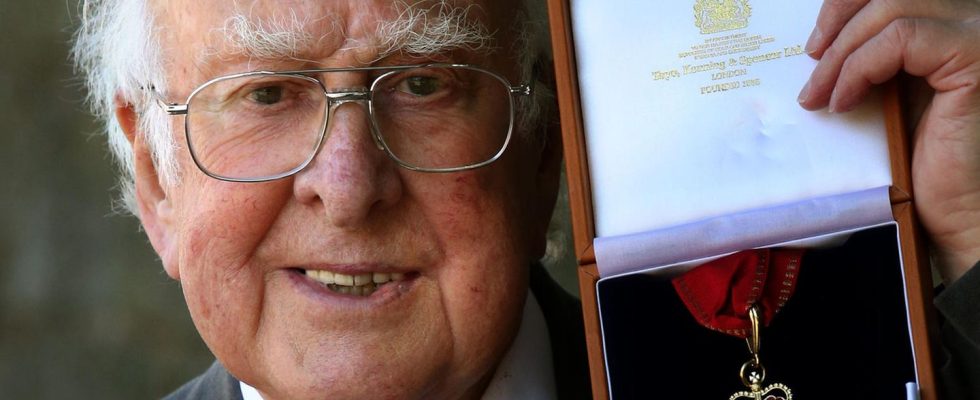University of Edinburgh
Discoverer of the “God particles”: Nobel Prize winner in physics Peter Higgs has died
Peter Higgs became world famous with his theory on the mass of elementary particles
© Andrew Milligan / DPA
Almost 50 years after his prediction of the Higgs particle, he received the Nobel Prize in Physics. His success never went to the researcher’s head. Peter Higgs has now died at an old age.
The British Nobel Prize winner in physics Peter Higgs is dead. The 94-year-old died at his home on Monday, the Scottish University of Edinburgh announced on Tuesday. He had spent most of his career at the university.
The Englishman became world famous with his theory on the mass of elementary particles. The discovery of the Higgs boson – also called the “God particle” – at the Cern research center in Switzerland catapulted the theorist into the physics hall of fame. Together with the Belgian François Englert, Higgs was awarded the Nobel Prize in 2013 for the prediction of the mass particle.
Atheist Peter Higgs rejected the term “God particle”.
“Peter Higgs was a remarkable human being – a truly gifted scientist whose vision and imagination enriched our knowledge of the world around us,” said University of Edinburgh Vice-Chancellor Peter Mathieson. “His pioneering work has motivated thousands of scientists, and his legacy will inspire many generations to come.”
Although the two theoretical physicists came up with mass theory around the same time in the mid-1960s, Higgs prevailed as the namesake and not Englert – which was rather unpleasant for the publicity-shy and modest physicist. He believed he was getting more fame than he deserved. The development of the thesis and the discovery of the particles was a group effort.
“I didn’t think it would happen in my lifetime,” Higgs told New Scientist, hoping to confirm his theory. But the situation changed when the large particle accelerators were built. The atheist rejected the name “God particle” for his discovery.

Higgs was born on May 29, 1929 in Newcastle upon Tyne, northeast England, the son of a sound engineer. As a child he suffered from asthma and was initially taught by his mother. In addition to his academic career, he was also politically active.
Until his death, the scientist was very popular with colleagues and the media. Over time, Higgs gave interviews less and less, preferring to focus on music, films and books and, above all, with his family, as a spokeswoman for the University of Edinburgh once said.


